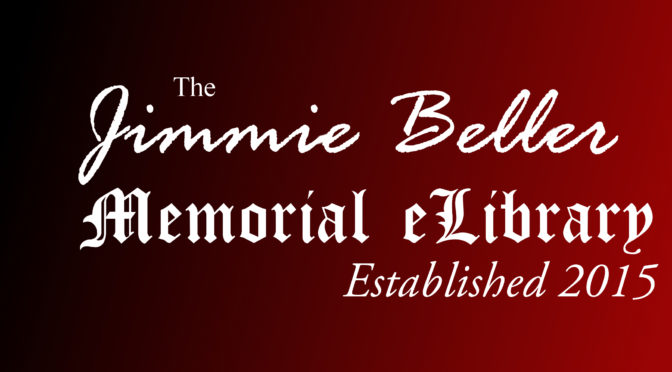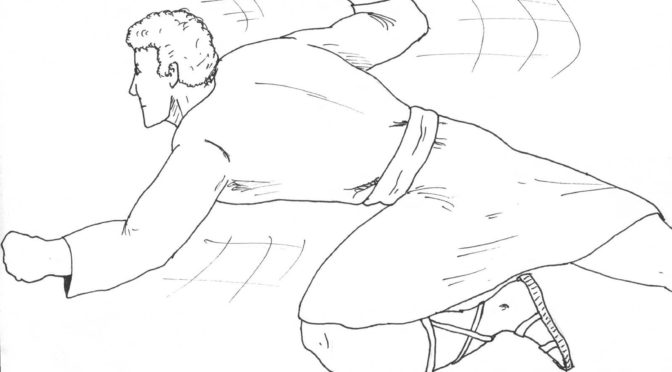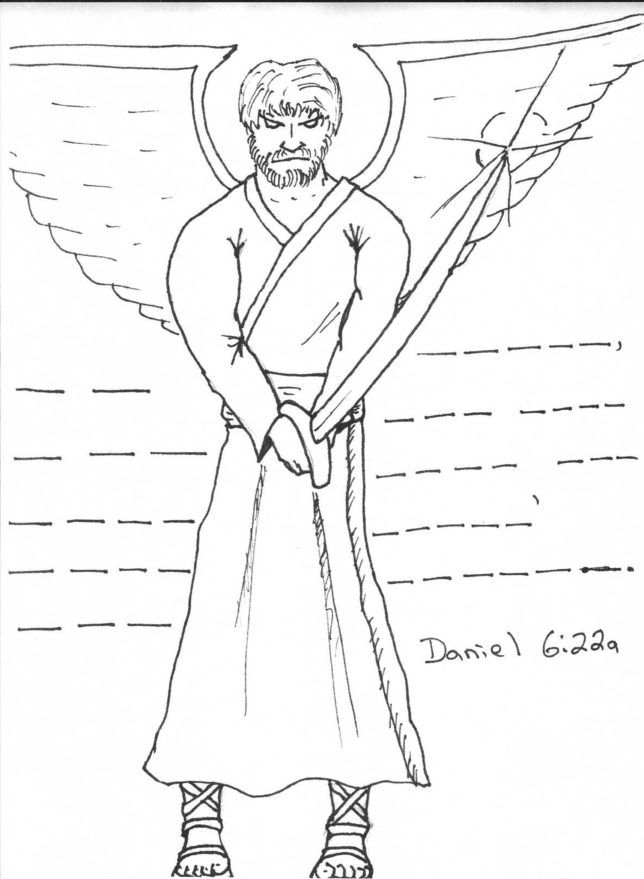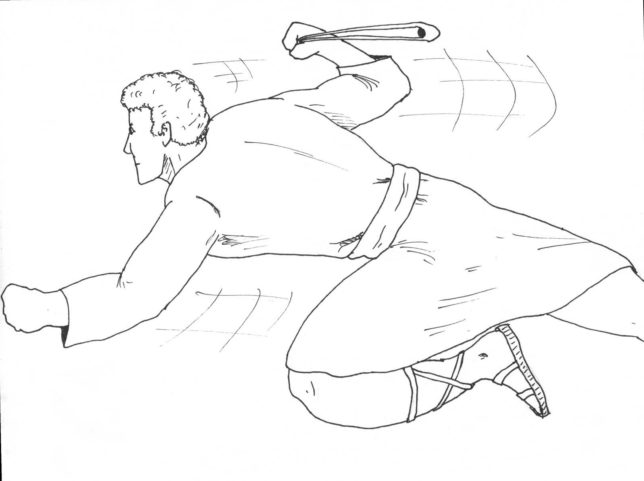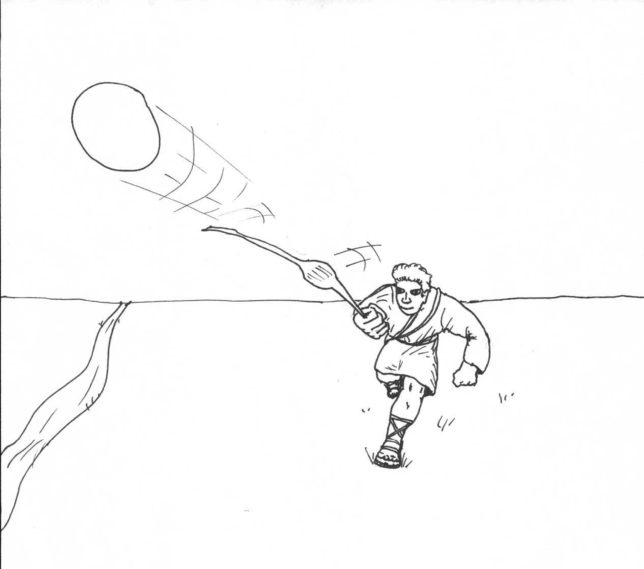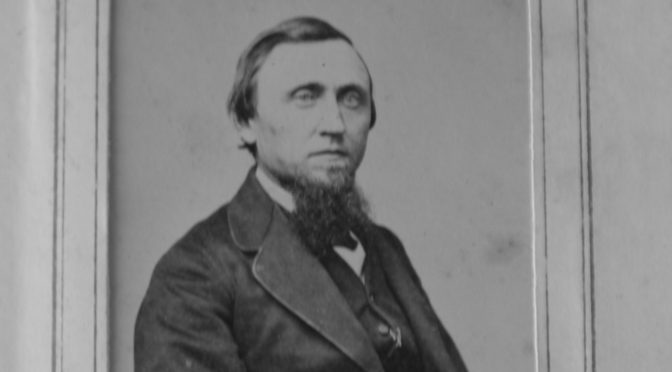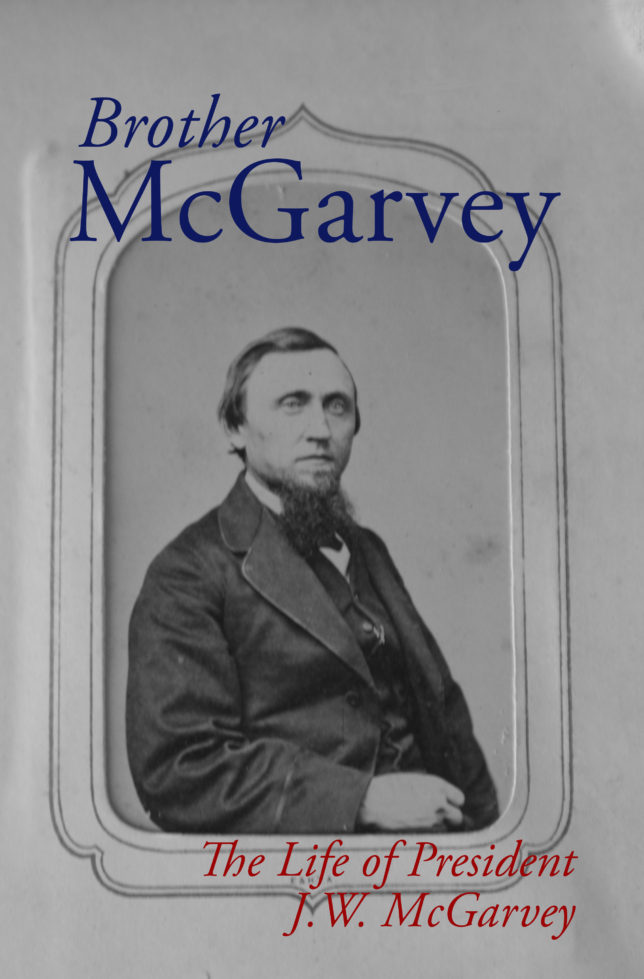Before we get into today’s post, we thought we’d share some news with you. As of the moment I type this, the “Who Were The Apostles?” book is up to 1,004 footnotes–and we’re still not done with Peter or Paul or the appendices at the end of the book! It continues to be a rewarding study for me, and I hope it has been enjoyable for you as well. Now, on to today’s entry in the life of Peter.

Simon Peter’s Confusion
After six days had completely passed,1 Jesus took Peter, along with James and John, up to a mountain in order to pray.2 As Jesus prayed, Peter, James, and John fell asleep.3 But when Peter awoke, the sight that he saw was absolutely beyond his comprehension: There was Jesus, His face changed, shining like the sun, and His clothing white as the light and shining.4 Standing with Jesus were two other individuals, appearing in glory.5 It was Moses and Elijah, who were both speaking with Jesus about His upcoming exodus from life which would happen in Jerusalem.6
As Moses and Elijah began to depart from the scene,7 Peter decided to speak up—even though he didn’t have a clue what to say, because he was scared.8 He said, “Lord, it’s good for us to be here. We will make [or I will make]9 three tabernacles: one for you, and one for Moses, and one for Elijah.” It seems as though Peter didn’t want these great men to leave just yet.10 But God had other plans. While Peter was saying this to Jesus, a cloud “overshadowed them, and they were afraid as they entered into the cloud. And there came a voice out of the cloud, saying, ‘This is my beloved Son: hear Him.’”11 Peter fell on his face in fright (and wouldn’t you be scared as well, with a voice coming from the cloud that you are now inside?), until Jesus touched him and said, “Get up, and don’t be afraid.”12 Then Peter gets up, and Moses and Elijah have disappeared—Jesus stands alone.
Then the Lord said something that might have struck them as odd: “Don’t tell anyone what you have seen until the Son of man is risen from the dead.”13 There were two things that got Peter’s attention: First, How can we not tell others that we just saw Moses and Elijah?!? And second, What does “rising from the dead” mean?14 Peter, James, and John discussed this second question as they were going down the mountain, still pondering on what they had just seen. It’s then they asked the Lord:
“Why do the scribes say that Elijah must come first?”15
They asked this because, if Jesus truly was the Christ, the Son of God, then Elijah should have come before He started His ministry—but instead, Elijah just appeared mere moments ago. Jesus answered them:
“Truly, Elijah comes first, and restores all things… But I tell you, that Elijah has already come, and they have done to him whatever they desired, as it is written of him.”16
When Jesus said this, Peter’s spiritual eyes were opened, and he understood that the prophecies weren’t talking about the literal Elijah coming first, but of a figurative Elijah—which was John the immerser.17
Another time, Jesus spoke a parable to the disciples about the importance of being prepared for His coming at all times.18 But Peter was confused about the application. He came to Jesus and said, “Lord, are you speaking this parable to us [alone] or to everyone else too?”19 Instead of giving a plain answer, Jesus responds with another parable which shows the universal application.20 It seems Peter understood the meaning of the parable, but not the specific application (to whom). There are many who fall into the same problem—usually thinking that certain passages apply to everyone but them.
-Bradley S. Cobb
1 Matthew (17:1) and Mark (9:2) both say “after six days,” while Luke says “about eight days after…” (Luke 10:28). There is no contradiction here, for without a doubt, “after six days” means after six days have passed (putting it no earlier than the seventh day from the previous events), and seven days can certainly said to be “about eight days.”
2 Luke 9:28. Matthew, Mark, and Luke each record the transfiguration, but Luke is the only one who tells us the stated purpose of the mountain journey.
3 Luke 9:32. Luke is the only one to record their sleeping on the mountain. Some (Meyer, Alford, Lange, etc.) have argued that they were simply extremely tired and drowsy, based on Luke’s choice of the Greek word which is translated “when they were awake.” One of the meanings of this word is “having remained thoroughly awake.” It is impossible to be both “extremely tired and drowsy” and “thoroughly awake” at the same time, as these commentators imply. The fact is, Peter, James, and John were all extremely tired and fell asleep. But when they awoke (possibly because of the voices of Jesus, Elijah, and Moses), they were wide awake, seeing the astounding scene before them.
4 Matthew 17:2; Luke9:29.
5 Luke 9:30-31. What this “glory” entails, so far as Moses and Elijah’s visible appearance, we are not told. It could be that they were shining or glowing as well, since Peter uses this same word (glory) to describe Jesus’ appearance during the transfiguration in 2 Peter 1:16-18.
6 Luke 9:30-31. The King James Version says “decease,” as does the ASV, NKJV. The ESV says “departure.” The Greek word is exodos, which is where the word Exodus comes from.
7 Luke 9:33 is the only place where this information is given. We are forced to wonder, did they begin to leave by walking? Or did they both begin to ascend? Did they begin to simply fade? Regardless, it may be that seeing them begin to leave is what spurred Peter to action in what he was about to say.
8 Mark tells us that Peter didn’t know what to say, because the disciples were “sore afraid” (Mark 9:6). Luke, however, is a bit more blunt and says that Peter “didn’t know what he was saying” (Luke 9:33).
9 There is a variant in the Greek manuscripts of Matthew 17:4. Most manuscripts say “We will make,” but there are some older ones that say “I will make.” However, all the manuscripts of Mark and Luke’s account of Peter’s quote say “We will make.” Peter wasn’t volunteering himself only, but him and James and John.
10 Some have suggested that Peter was trying to get them to stay for the impending Feast of Tabernacles, or feast of booths, and that He, James, and John would even take care of putting up their tents for them. However, that would go against what Mark and Luke say about Peter not knowing what he was saying—plus no evidence is given by these commentators to suggest that this Jewish feast was near. See Robertson’s Word Pictures on Luke 9:33. Vincent’s Word Studies suggests that he wanted to give them shelter for the evening. This seems more likely if, as we suggest, that Peter was trying to get them to stay longer.
11 Luke 9:34-35.
12 Matthew 17:6-7. This detail is unique to Matthew’s account.
13 Matthew 17:9. Most translations say “Tell no man the vision.” But the primary meaning of the Greek word is “That which is seen” or a “Spectacle” (Thayer). The Living Oracles, 1835 edition renders it “Tell no person what you have seen.” See also The Amplified Bible, and Vincent’s Word Studies on this passage. There is reason to believe that this is not a “vision” as the word is commonly used in the New Testament: (1) Moses and Elijah appeared and spoke with Jesus while the apostles were sleeping—and the apostles didn’t know anything about it until they awoke; (2) Generally speaking, a “vision,” is that which is seen by someone in their head—like a dream while you’re awake—and not something that is actually taking place in the physical realm; (3) If this is a miraculous vision, it is the only time in the New Testament where this word is used to describe something seen by more than one person (Acts 7:31; 9:10, 12; 10:3, 17, 19; 11:5; 16:9-10; 18:9. Acts 12:9 is what Peter thought was a vision—these are the only other places in the New Testament where this word is used); (4) The same word is used in Acts 7:31 to describe the burning bush; the KJV translates it “the sight,” and not “the vision,” because it was actually a bush that was actually on fire and not being consumed—it wasn’t something in his head, therefore isn’t what we generally consider to be a “vision.” (5) Please note that there are other words translated “vision” in the New Testament, but these are not connected to the word Jesus used in Matthew 17:9, except for the word used in Acts 2:17 (“your young men shall see visions”), Revelation 9:17 (“…I saw the horses in the vision”), and Revelation 4:3 (“He that sat was, to look upon, like a jasper and a sardine stone; and there was a rainbow round about the throne, in sight like unto an emerald”). These three passages, containing the only four occasions of this specific Greek word in the New Testament, show that this word could refer to a miraculous vision, or simply what something looked like. This word shares its root with the Greek word translated “vision” in Matthew 17:9 (as well as the other places mentioned in point #3 of this footnote).
14 Mark 9:10. This is interesting that Peter, James, and John should be discussing what “rising from the dead” means when all three of them had seen Jairus’ daughter risen from the dead (admittedly after a very short amount of time), but they had just seen Moses and Elijah—Moses, at least, having long since been dead! (Elijah’s physical existence certainly ceased hundreds of years earlier, but whether or not it is correct to say he “died” is something which can be debated by others).
15 Mark 9:11, Matthew 17:10.
16 Mark 9:12-13.
17 Matthew 17:13. This is a lesson that many people still have not learned—a prophecy doesn’t have to be fulfilled literally to still be fulfilled. Many prophecies of the Bible are given in figurative or typological ways, such as with Elijah and John the immerser. Jesus prophesied the “coming of the Son of man” which would take place in a single generation (40 years), but this wasn’t a reference to Him literally coming to the earth within 40 years of His death—it was a reference to His execution of judgment against the wicked Jewish nation that had rejected Him and put Him to death (Matthew 24:27-34). Many other examples could be given, but these will suffice to prove the principle. That isn’t to say that all prophecies are fulfilled this way, but that some are.
18 Luke 12:35-40.
19 Luke 12:41.
20 Luke 12:42-48. There are different servants described in the parable—those who knew the Lord’s will and didn’t do it, and those who were ignorant of the Lord’s will. Neither of these could describe the apostles; therefore the parable has application beyond just them. Some claim that this is a parable describing the coming of Jesus Christ in judgment upon Jerusalem in AD 70, but that doesn’t match up with the concept of the servants of the Master being punished—some with many stripes, others with few stripes. In AD 70, the servants of Christ were spared, and it was the wicked who were punished with destruction inside the city by the Roman armies—they didn’t give out different levels of punishment.


